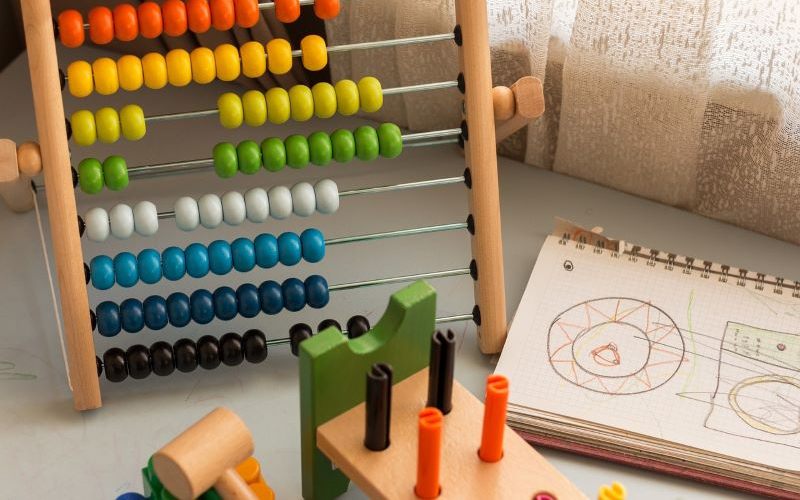It takes most first time buyers five years to save for a house deposit on average, and in some cities much longer. And in Sydney it can take longer still. Most of us just suck it up and deal with it, scrimping and saving as much as we can.
But some first home buyers just can’t wait that long. If you’re one of them, one way you could fast-track your way into your own home is with the help of a guarantor.
What is a guarantor home loan?
A guarantor home loan allows a close relative (typically a parent) to use the equity in their home as security for part or all of your mortgage. You still need to borrow money from a lender and repay it, but your guarantor provides security for the loan that you would normally have provided in the form of a deposit.
And that’s the catch. If you can’t make your loan repayments, your guarantor is liable to cover them. If they also can’t meet the repayments, they could be faced with the bank repossessing their home.
Even if you’re the favourite child, your guarantor may choose to only guarantee a portion of the loan (like 20%) rather than all of it. Once you (the borrower) has repaid that 20% portion of the loan, the guarantor’s property is safe even if you miss future repayments. The guarantor can then ask to be released from the loan.
Who can be a guarantor?
Most lenders will generally require a guarantor to be a close family member, such as a parent or partner, though some lenders may allow other relatives to be guarantors, like a sibling or grandparent.
Many banks will have different eligibility requirements of who can be guarantor, but the following usually apply:
- A stable income
- Between the ages of 18 and 65
- A good credit report
- Sufficient equity in their home (typically at least 80%), or they must own their home outright
- The guarantor’s property must be here in Australia
How much can I borrow with a guarantor?
In many cases, lenders may allow you to borrow up to 100% of the value of the property, or even up to 110% if you’re using a guarantor. Much of this will, of course, depend on the lender, your financial standing as a borrower, and the guarantor’s financial situation.
Some lenders may require you to put down a deposit of some kind, typically at least 5% in genuine savings, even with a guarantor.
Advertisement
Buying a home or looking to refinance? The table below features home loans with some of the lowest interest rates on the market for owner occupiers.
| Lender | Home Loan | Interest Rate | Comparison Rate* | Monthly Repayment | Repayment type | Rate Type | Offset | Redraw | Ongoing Fees | Upfront Fees | Max LVR | Lump Sum Repayment | Additional Repayments | Split Loan Option | Tags | Row Tags | Features | Link | Compare | Promoted Product | Disclosure |
|---|---|---|---|---|---|---|---|---|---|---|---|---|---|---|---|---|---|---|---|---|---|
5.79% p.a. | 5.83% p.a. | $2,931 | Principal & Interest | Variable | $0 | $530 | 90% |
| Promoted | Disclosure | |||||||||||
5.74% p.a. | 5.65% p.a. | $2,915 | Principal & Interest | Variable | $0 | $0 | 80% |
| Promoted | Disclosure | |||||||||||
5.84% p.a. | 6.08% p.a. | $2,947 | Principal & Interest | Variable | $250 | $250 | 60% |
| Promoted | Disclosure |
Benefits and risks of using a guarantor
For some borrowers, having a guarantor can be a great way to fast-track their way into the property market. For others, it can be too much of an extra burden knowing that the finances of a close family member could be at stake.
Benefits
Get into the property market faster: Using a guarantor allows borrowers to leapfrog their way into the property market, which can be extremely appealing. Once you’ve got your foot in the door, you can start building up equity and reap the rewards of capital gains if your property grows in value.
Sometimes, property prices can rise faster than your ability to save for a 20% deposit. What was a 20% deposit a few years ago may now only be worth 15% because house prices have risen so much in that time.
Avoid paying Lenders Mortgage Insurance (LMI): LMI can add thousands of extra dollars onto your home loan. Sometimes it can be worth paying if house prices are rising faster than your ability to save, but using a guarantor allows you to skip paying LMI altogether. That’s because the risk to the lender has already been insured in a way, by having the guarantor’s home as security for the loan.
Improve your chances of getting a home loan: Having a guarantor can also strengthen your home loan application as it demonstrates you have security in place for the loan. However, most lenders will still require you to demonstrate you’ll be able to repay the home loan in your own right.
Risks
Guarantor’s property is at risk: This is definitely the biggest risk of guarantor home loans. If the borrower can’t make their loan repayments for whatever reason (i.e. they lose their job and suddenly have no income) the guarantor is then liable to cover the mortgage repayment. If they also can’t make the repayments, the guarantor could end up being forced to sell their home to repay your loan.
Obviously, this presents a huge risk and both parties need to be fully informed about it before entering into a guarantor agreement. This is especially the case if parents are on the path to retirement because it could jeopardise their retirement plans if the worst came to the worst.
Martin North, Principal of Digital Finance Analytics, warns the first five years are the riskiest time for guarantors.
“You’re twice as likely to default in the first five years if you got help from mum and dad and never got into the savings mindset,” Mr North said.
Guarantor’s credit report could be ruined: Wrecking your guarantor’s credit report is another nasty problem that could rear its ugly head if you as the borrower can’t pay and nor can your guarantor. You’ll have essentially ruined their credit record for a debt that wasn’t even theirs. Ouch.
The strain on relationships: Asking a loved one to go guarantor for you is an enormous financial commitment which can put an enormous amount of strain on even the best relationship. Expect family dinners to be pretty tense if your parents don’t think you’re being responsible enough with your mortgage commitments.
That’s not to mention the precedent it sets for your siblings if your parents give you a leg up into the housing market.
What are my other options if I can’t use a guarantor?
Obviously, having a parent who’s willing to guarantee your house deposit is an enormous privilege only a lucky few have. Many of us will have to resort to other means to get our slice of the Great Australian Dream.
Government support
The First Home Loan Deposit Scheme will allow eligible first home buyers to buy a house with a deposit as low as 5%. Provided they have saved up a deposit of at least 5%, the government will then guarantee the additional amount needed to reach the 20% deposit, saving borrowers the cost of LMI. The New Home Guarantee provides essentially the same guarantee albeit for new builds.
The Family Home Guarantee also guarantees up to 98% of the property's value without the need to pay LMI. Again there are income and property price caps.
Co-buying a home
Under a co-buying arrangement, you get a home loan with your parents (or another relative or a friend) and buy a property together. Your parents would typically use the equity in their current home to boost your borrowing power and the cost of repaying the loan is split between the two of you.
If either one of you falls behind on their repayments, the other party is responsible for paying their share (similar to how you would cover a bad housemate’s missed rent) but your parents won’t have to put their home up as security for the loan.
Under a co-buying arrangement, there are two ownership options: tenants-in-common or joint tenants.
Tenants-in-common is the more popular option and allows you and the other party (or parties) to divide ownership of the property in whatever way you want, such as 60/40, 50/50 or even 20/30/50, etc.
Under a joint tenancy agreement, ownership of the property is split 50/50. Joint tenancy comes with the “right of survivorship” so if one tenant dies, their share of the property is passed on to the surviving joint tenant.
Low deposit home loan
Buyers struggling to save up a decent 20% deposit may want to consider a low deposit home loan. As the name suggests, a low deposit home loan allows borrowers to take out a home loan with a deposit as low as 5%.
But there’s a catch. Because you’re borrowing more than 80% of the property’s value, many lenders will charge you LMI. Depending on how much you’re borrowing, LMI can be a significant cost, ranging from a few thousand dollars up to twenty thousand dollars or more, depending on the price of the property you’re buying.
Low deposit home loans aren’t as common as higher deposit home loans, but they are available from some of the biggest lenders including the big four banks: ANZ, Westpac, Commonwealth Bank and NAB, as well as ING, Suncorp Bank, Macquarie Bank, Bank of Queensland, ME Bank, and Bendigo & Adelaide Bank.
95% deposit home loans do come with certain downsides, like higher interest rates, higher fees and stricter lending criteria to compensate for the fact that you’re a riskier borrower.
95% home loan lenders
Buying a home without a 20% deposit? The table below features home loans with some of the lowest interest rates on the market for owner occupiers with 95% LVR.
| Lender | Home Loan | Interest Rate | Comparison Rate* | Monthly Repayment | Repayment type | Rate Type | Offset | Redraw | Ongoing Fees | Upfront Fees | Max LVR | Lump Sum Repayment | Additional Repayments | Split Loan Option | Tags | Row Tags | Features | Link | Compare | Promoted Product | Disclosure |
|---|---|---|---|---|---|---|---|---|---|---|---|---|---|---|---|---|---|---|---|---|---|
5.74% p.a. | 5.75% p.a. | $2,915 | Principal & Interest | Variable | $null | $null | 95% | ||||||||||||||
6.04% p.a. | 6.06% p.a. | $3,011 | Principal & Interest | Variable | $0 | $195 | 95% | ||||||||||||||
6.04% p.a. | 6.07% p.a. | $3,011 | Principal & Interest | Variable | $0 | $300 | 95% | ||||||||||||||
6.34% p.a. | 6.62% p.a. | $3,108 | Principal & Interest | Variable | $295 | $0 | 95% | ||||||||||||||
6.40% p.a. | 6.45% p.a. | $3,128 | Principal & Interest | Variable | $0 | $745 | 95% | ||||||||||||||
6.49% p.a. | 6.84% p.a. | $3,157 | Principal & Interest | Variable | $0 | $0 | 95% | ||||||||||||||
6.54% p.a. | 6.56% p.a. | $3,174 | Principal & Interest | Variable | $0 | $210 | 95% | ||||||||||||||
6.59% p.a. | 6.63% p.a. | $3,190 | Principal & Interest | Variable | $0 | $0 | 95% | ||||||||||||||
6.89% p.a. | 7.28% p.a. | $3,290 | Principal & Interest | Variable | $395 | $350 | 95% | ||||||||||||||
7.15% p.a. | 7.18% p.a. | $3,377 | Principal & Interest | Variable | $0 | $0 | 95% | ||||||||||||||
6.94% p.a. | 6.97% p.a. | $3,306 | Principal & Interest | Variable | $0 | $350 | 95% | ||||||||||||||
6.94% p.a. | 7.18% p.a. | $3,306 | Principal & Interest | Variable | $248 | $350 | 95% | ||||||||||||||
7.09% p.a. | 7.09% p.a. | $3,357 | Principal & Interest | Variable | $0 | $0 | 95% | ||||||||||||||
7.49% p.a. | 7.85% p.a. | $3,493 | Principal & Interest | Variable | $null | $400 | 95% | ||||||||||||||
7.49% p.a. | 7.61% p.a. | $3,493 | Principal & Interest | Variable | $10 | $150 | 95% | ||||||||||||||
7.79% p.a. | 7.82% p.a. | $3,596 | Principal & Interest | Variable | $0 | $635 | 95% | ||||||||||||||
7.59% p.a. | 7.61% p.a. | $3,527 | Principal & Interest | Variable | $null | $400 | 95% |
Cash gift
If you’ve got cashed-up parents who are generous with their coin and willing to gift you money for a house deposit (first of all I’m up for adoption), but secondly you can use this towards your down payment.
There are some rules though.
A gift letter or statutory declaration has to be signed by the family member, stating the money is to be used to buy a property and that the loan is unconditional (meaning it’s non-refundable). Non-refundable cash gifts can only be given from an immediate family member, which includes parents, siblings, grandparents but also de facto partners.
You can’t rest on your laurels either as you need to be able to prove you have genuine savings and have the capacity to afford to make the loan repayments.
What if I want to be a guarantor?
Guaranteeing someone else’s loan is a massive commitment not to be entered into lightly. Before you potentially sign your home away, these are the things to keep in mind:
- Think carefully about whether you can afford to be a guarantor and if the borrower can afford the loan
- Seek out legal and financial advice to make sure you understand how the loan process works and the impacts it could have on your financial situation
- Take your relationship with the borrower into account
- If possible, limit your guarantee in terms of the amount and time period
- Make sure you can cover the monthly repayments if you’re required to in the event the borrower can’t
- Are you prepared to repay the loan if the borrower can’t?
- Get guarantor protection
- Consider if the borrower expects any life changes that will change their current circumstances (i.e. are they planning on having kids and leaving work?)
- Does the borrower have plans in place if their circumstances change?
- Do you have a strategy in place if the worst-case scenario happens and you need to sell your house to repay the guaranteed amount?
Savings.com.au’s two cents
If you really want to buy a house with no deposit, using a guarantor could be your best option. But there are a few things to keep in mind, namely:
- What will happen if you can’t make your home loan repayments?
- How could that affect your relationship with the guarantor?
Just because you can buy a property without a 20% deposit doesn’t always mean you should. In many cases, it’s often better to patiently save up. Our article on how to save up for a house deposit has some handy tips for doing this, and if you’re on one income we’ve got an article for you too.
First published on November 2019
Image by bernardbodo via Adobe Stock

Ready, Set, Buy!
Learn everything you need to know about buying property – from choosing the right property and home loan, to the purchasing process, tips to save money and more!
With bonus Q&A sheet and Crossword!




















 Denise Raward
Denise Raward

 Harrison Astbury
Harrison Astbury



